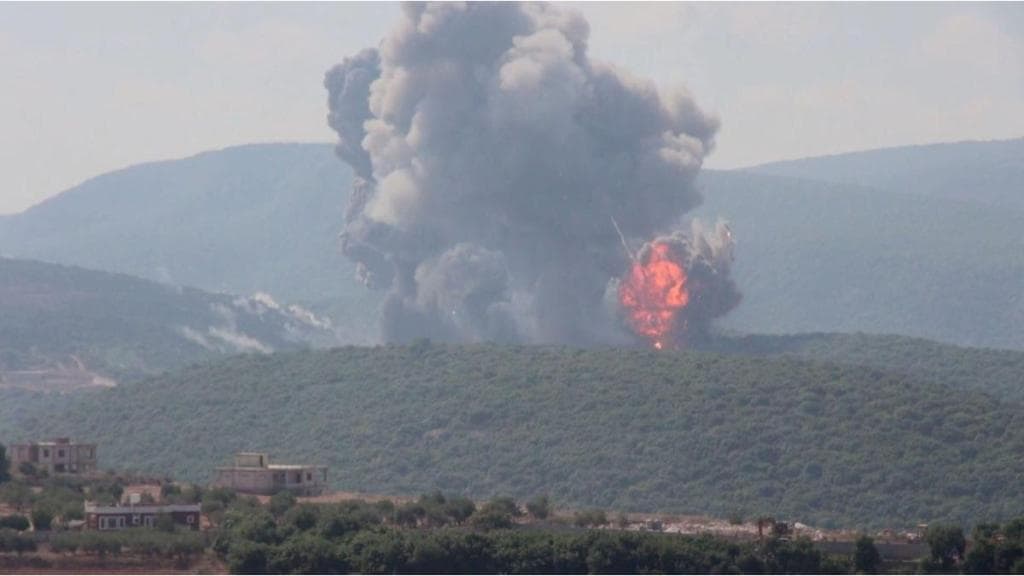In one of the largest clashes in over ten months of border warfare, Hezbollah launched hundreds of rockets and drones at Israel early Sunday. In response, Israel’s military deployed around 100 jets to strike Lebanon, thwarting what it described as a larger, imminent attack. Despite the intense exchange, Israel reported no casualties, though Lebanon confirmed three deaths.
Hezbollah, which fired 320 Katyusha rockets targeting Israel and struck 11 military sites, announced that this was the first phase of its retaliation for the assassination of Fuad Shukr, a senior commander, last month. However, Hezbollah suggested that no further strikes were planned immediately, aiming to avoid a full-scale war.
While Israel’s foreign minister emphasized that the country did not seek a full-scale conflict, Prime Minister Benjamin Netanyahu stated, “This is not the end of the story.” Netanyahu revealed that Israel had taken pre-emptive action against Hezbollah, noting that the military’s airstrikes had targeted 40 launch sites, preventing what could have been a more extensive attack.
Hezbollah dismissed Israel’s claim of pre-emptive success, asserting that its operations proceeded as planned and that its complete response to Shukr’s killing would “take some time”.
Escalation risks in volatile region
This border conflict, which escalated alongside the ongoing war in Gaza, raises the risk of a broader regional conflagration. Such a development could potentially draw in Hezbollah’s supporter, Iran, and Israel’s primary ally, the United States.
As a precaution, Israel’s military activated the Iron Dome aerial defense system, intercepting rockets fired from southern Lebanon. Warning sirens sounded throughout northern Israel, and explosions were reported in various locations. Residents were advised to limit gatherings and stay close to air raid shelters, though these restrictions were later lifted.
In Lebanon, a security source reported that at least 40 Israeli airstrikes had hit towns in the south, marking one of the most intense bombardments since hostilities began in October. Hezbollah confirmed the death of two of its fighters in al-Tiri due to Israeli strikes, while the Hezbollah-allied Shi’ite Muslim group Amal reported one of its fighters was killed in Khiam.


